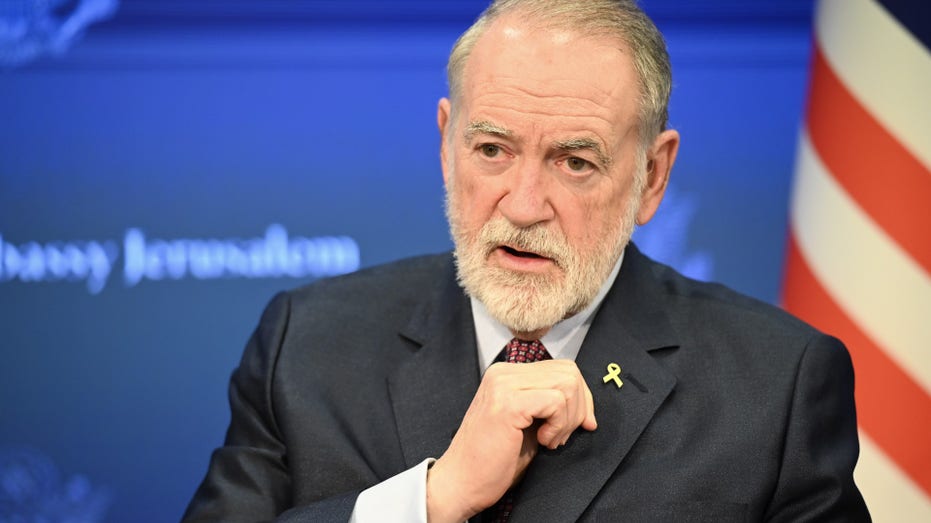
US Excludes Itself from Conference on Palestinian Statehood in NY
Exclusive insights from U.S. Ambassador to Israel, Mike Huckabee
US Decision Not to Participate
In a significant diplomatic development, the United States has officially stated it will not participate in a conference organized next month in New York City by France and Saudi Arabia. This meeting is intended to advance recognition of a Palestinian state, a topic that has long been contentious in international politics. U.S. Ambassador to Israel, Mike Huckabee, disclosed this information during an exclusive interview with Fox News Digital while in Jerusalem.
Huckabee’s Strong Reactions
Ambassador Huckabee articulated that it is “incredibly inappropriate” to push for recognition of a Palestinian state amid the ongoing conflict that Israel faces. He emphasized that perspectives have shifted dramatically since the events of October 7, a date he describes as a turning point for Israeli sentiment regarding statehood recognition.
“If France is really so determined to see a Palestinian state, I have a suggestion for them – carve out a piece of the French Riviera and create a Palestinian state. They are welcome to do that, but they are not welcome to impose that kind of pressure on a sovereign nation,” he stated, expressing his disdain for what he perceives as unwarranted external pressure on Israel.
Furthermore, Huckabee made it clear that the United States would not align itself with what he refers to as a “ruse,” urging France to reconsider its stance on this issue.
US-Israel Relations Amidst Disagreements
During the interview, Huckabee addressed the recent tensions between the U.S. and Israel, indicating that while differences in opinion persist, particularly regarding strategies in Gaza and hostages’ negotiations, these do not signify any fundamental rift in their bilateral relationship. He reassured pro-Israel advocates that the alliance remains solid.
“The relationship between Israel and the U.S. is not in any way at risk, nor is it splintered or fractured. It’s solid, it has to be,” he asserted, highlighting the critical nature of U.S.-Israel ties, describing it as a partnership that encompasses shared intelligence and military collaboration.
Concerns Over Iran
Huckabee did not shy away from addressing the threats posed by Iran, labeling the nation as “one of the greatest threats to world peace.” He warned of an immediate existential threat not just to Israel but also to Gulf nations and the U.S. itself. “The Iranians have said Israel is the ‘Little Satan,’ but America is the ‘Great Satan.’ They’ve always treated Israel as the appetizer and the United States as the entrée,” he explained, stressing the importance of taking Iranian threats seriously.
Despite these concerns, Huckabee expressed a cautious hope that ongoing nuclear negotiations with Iran could yield positive outcomes, while also delivering a stark warning: “But when diplomacy fails, the soldiers show up.”
The Conflict in Gaza and Hostage Situation
Turning the conversation to the conflict in Gaza, Huckabee conveyed a sense of urgency regarding the hostage situation. He maintained that peace could be swiftly achieved if Hamas were to release all hostages and relinquish control over Gaza. “This could have been over on October 8, 2023; it should have been,” he lamented, condemning the actions of Hamas as “heinous” and “uncivilized.”
Furthermore, Huckabee reiterated that Hamas does not have a viable future in Gaza. He mentioned Trump’s position that the organization cannot remain in power and must be removed for stability to return to the region. Huckabee conveyed hope for the immediate resolution of the hostage crisis, stating, “One of the happiest days of my life will be when I can take this pin off and permanently put it away, never to wear it again, because that means all of the hostages have come home.”
Future of the Abraham Accords
Looking ahead, Huckabee expressed optimism regarding the potential expansion of the Abraham Accords, which were established during Trump’s first term and served to normalize relations between Israel and several Arab states, including the United Arab Emirates and Bahrain. While he refrained from naming specific countries that might join this alliance in the future, his confidence in the ongoing dialogue regarding normalization of relations was palpable.
















